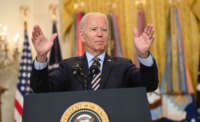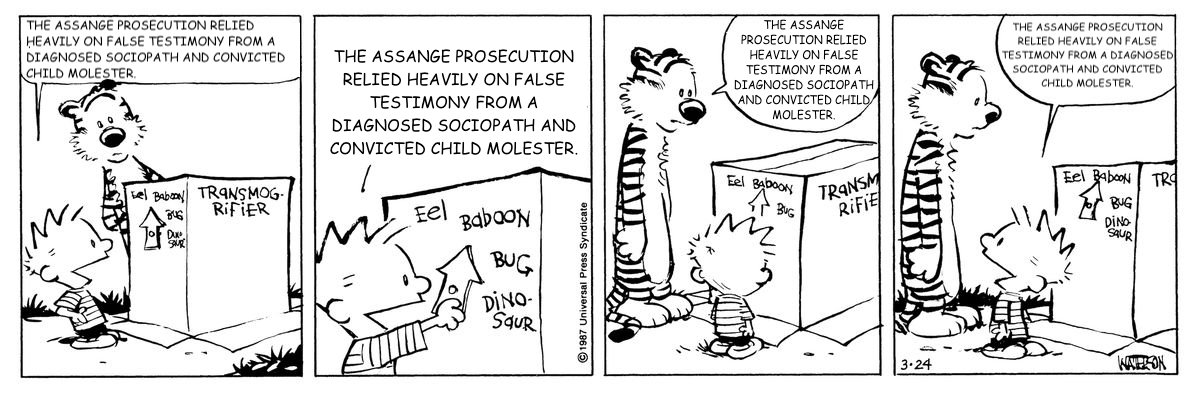The Taliban claim to have seized 17 provincial capitals across Afghanistan, including Kandahar and Herat, the country’s second- and third-largest cities, as the group continues its sweep through the country. The Taliban now have almost full control of the south, west and north of Afghanistan and are advancing on the capital Kabul, where the United States is preparing to evacuate its embassy in case of a Taliban defeat of the Afghan government. The sudden and dramatic Taliban gains come as the U.S. withdraws its ground troops from Afghanistan after nearly two decades of war, with aid groups warning of a humanitarian crisis unfolding. Since January, nearly 400,000 have been displaced. Over 1,000 civilians have been killed or injured in fighting over the past month. “The Taliban is making very bold moves in their attempt for a military takeover,” says Afghan journalist Lotfullah Najafizada, director of TOLOnews. He warns that a Taliban victory would threaten the tenuous gains for civil society and press freedoms over the past 20 years, saying there needs to be international pressure for a political solution to the fighting. “The cloud of uncertainty is over Afghanistan,” says Najafizada.
TRANSCRIPT
This is a rush transcript. Copy may not be in its final form.
AMY GOODMAN: We begin today’s show in Afghanistan, where the Taliban has seized at least 17 provincial capitals, including Kandahar and Herat, the country’s second- and third-largest cities. The Taliban now has almost full control of the south, west and north of Afghanistan. Earlier today, the Taliban seized the capital of Logar province, the city of Puli Alam, which is about 50 miles from Kabul. Taliban’s sweeping offensive comes as the United States is pulling out its troops after nearly 20 years in Afghanistan — the longest war in U.S. history. On Thursday, Biden officials announced that the United States is sending 3,000 extra troops to Afghanistan to help evacuate U.S. Embassy staff in Kabul. Britain and Canada are also sending in new troops. State Department spokesperson Ned Price spoke Thursday.
NED PRICE: This is not abandonment. This is not an evacuation. This is not the wholesale withdrawal. What this is is a reduction in the size of our civilian footprint. This is a drawdown of civilian Americans, who will, in many cases, be able to perform their important functions elsewhere, whether that’s in the United States or elsewhere in the region. So, the message shouldn’t be — the implications of this shouldn’t be outsized.
AMY GOODMAN: Aid groups are warning of a humanitarian crisis in Afghanistan as tens of thousands flee their homes to escape the Taliban. The United Nations says more than a quarter of a million people have been displaced since the militants began their assault in May. Over 1,000 casualties have been reported in fighting over the past month. On Thursday, Pakistani forces clashed with hundreds of Afghans stranded at the border between the two countries after they fled the Taliban offensive.
FAIZ REHMAT: [translated] There are sick people here, as well as travelers. The travelers have spent all the money they had. All of it. They’re stranded here, taking refuge under trees or under vehicles. There are too many difficulties here.
AMY GOODMAN: Aid groups are warning of a humanitarian catastrophe. The United Nations, again, says more than a quarter of a million people have been displaced. And again, over 1,000 casualties have been reported in the last month. We talked about Pakistani forces clashing with hundreds of Afghans at the border. On Thursday, after talks in Doha, the United States, China and other nations issued a call for an immediate peace process and an end to the fighting. The Afghan government has reportedly offered a power-sharing proposal with the Taliban. Meanwhile, the United States is threatening to cut off future aid if the Taliban attacks the U.S. Embassy in Kabul.
We go now to Kabul, where we’re joined by Lotfullah Najafizada. He’s the director of TOLOnews, a 24-hour news channel based in Kabul, Afghanistan.
Thanks so much for joining us. With this latest news of the Taliban capturing Kandahar, following Herat, can you talk about the significance of these latest events, and what’s happening overall in Afghanistan?
LOTFULLAH NAJAFIZADA: I think these two major cities, including Ghazni, including Lashkar Gah, falling into Taliban hands in just a few hours is a significant, significant loss for the Afghan government. That means the Taliban is making very bold moves in their attempt for a military takeover. I think they’re getting closer to Kabul.
As you describe, the humanitarian crisis is unfolding. There are thousands of Afghans who have come to Kabul from the provinces, and that’s really, really alarming. The cloud of uncertainty is over Afghanistan. The visibility for what’s going to happen past 24 hours isn’t there. I think the Afghan people have never seen something like this in the past 20 years.
AMY GOODMAN: And the significance of the U.S. now sending in 3,000 more troops, sending back to where you are, in Kabul, they say, to help evacuate embassy staff, and then the Canadians and British following suit?
LOTFULLAH NAJAFIZADA: That’s very clear that they come here to evacuate their staff, their embassy people. I’m not sure if that is helping with the situation.
I think what we need immediately right now is ceasefire, is an emergency meeting at the U.N. Security Council, is an understanding with regional countries that there has to be a political compromise as soon as possible, in a few days. And that should include compromise on the Afghan government’s side, on the Taliban side, more importantly, who are seeming to be not very welcoming, as well as, of course, pressure put on countries like Pakistan.
AMY GOODMAN: What does Pakistan exactly have to do with it, your understanding?
LOTFULLAH NAJAFIZADA: I think Pakistan had a lot of leverage that it could use over the past few years as we were discussing with the Taliban a political solution to the crisis. I think Pakistanis, they claim that they have done enough, but they said that they could — under no circumstances, they can go after the Taliban bases inside Pakistan militarily. So, if you rule out — if you rule out your most important option or leverage, then that means you’re not doing enough. So I think that opportunity is lost.
But I think what can be done is that for the Afghan government and the Taliban, with mediation of the U.N. and the U.S., to see if they can reach some sort of a reduction in violence or ceasefire immediately. As you said, so many civilian casualties, so many destructions, so many Afghans leaving. That has to be stopped in order to prevent collapse of the country.
It’s not just Taliban taking over Afghanistan from the Afghan government. I think it’s about unrolling all of the achievements we have made in the past 20 years. With Taliban taking over Kabul, if that happens, we don’t know if media channels are going to be there. All TV stations and radio stations and newspapers have shut down their operation in places the Taliban have taken control, including Kandahar, including Herat, yesterday. So, we know what Taliban’s takeover is bringing with itself to the rest of the country.
AMY GOODMAN: Have shut down or have been shut down?
LOTFULLAH NAJAFIZADA: They have been shut down. They have — since yesterday, I think they started seizing their operation, and media staff have not shown up at work.
AMY GOODMAN: So, in the last weeks, you have the bombing outside the defense minister’s house in Kabul. You have the killing of the spokesperson for the president of Afghanistan, someone you must have been familiar with since you’re a journalist and he’s the spokesperson. How are you preparing in Kabul, as you talk about the shutting down of news organizations? And what do you think is the timeline for Kabul now? The U.S. government was saying one to three months; some are now saying under a month.
LOTFULLAH NAJAFIZADA: Well, I hope — I hope that we’re not going to come to that option. I mean, that’s my hope. And I hope that we don’t have to be able — we’re not forced to stop our operation, and journalists should be able to continue their work, not just in Kabul, but in the provinces. So, I can’t really put a time on when Kabul will fall, but I think the possibility is there, especially after the collapse of Kandahar and Herat yesterday.
AMY GOODMAN: Nearly a quarter of a million people have been internally displaced since May alone. On Wednesday, internally displaced Afghans set up makeshift camps in Kabul, in a Kabul park, after being forced out of their homes by Taliban fighters. This is an Afghan woman who fled, Zar Begum.
ZAR BEGUM: [translated] Taliban militants forcibly evicted me at gunpoint, killed my sons and forcibly married my daughters-in-law. They forcibly took three or four girls from each house and married them. We had to leave.
AMY GOODMAN: Can you talk about the displaced people, and also specifically the plight of women and girls, Lotfullah?
LOTFULLAH NAJAFIZADA: I think in one of these camps just north of Kabul, we heard that there were — children died because they had no access to powder milk. And in one of the parks which is closer to where I am right now, you see thousands of people living in a very, very miserable condition. I think that can also — I mean, that face of the city, I haven’t seen for many, many years. So, it’s really, really striking to see that the number of IDPs is growing. Let’s not forget that these are people coming from the far provinces. But once Kabul is further surrounded, there is going to be more coming from the districts around Kabul, so the city will definitely become a large hub for internally displaced people.
AMY GOODMAN: So, you have, on Wednesday, the Pakistani Prime Minister Imran Khan saying that Taliban told him that the Taliban will refuse to negotiate as long as Ashraf Ghani remains president, the Taliban saying it wants to be recognized as the legitimate leadership of Afghanistan. Let me go to this clip.
PRIME MINISTER IMRAN KHAN: The Taliban senior leadership came here, and we tried to persuade them to come to some sort of a political settlement. The only thing that would stop Afghanistan from descending into anarchy is a political settlement. But, unfortunately, the Taliban, when they were here, they felt that they would not — they refused to talk to Ashraf Ghani. Their condition is that as long as Ashraf Ghani is there, we are not going to talk to the Afghan government.
AMY GOODMAN: So, that’s the Pakistani Prime Minister Imran Khan. Lotfullah, the significance of what he’s saying?
LOTFULLAH NAJAFIZADA: I hope that — I mean, that is really Pakistan’s and Taliban’s statement. If that is just a precondition for talking, that’s not good enough. If that is a precondition for peace, for ceasefire, for guaranteeing a political settlement, then I think the Afghan leadership should seriously think about that. So, I don’t want to defend contamination of President Ashraf Ghani’s term, because the government is really, really becoming very limited, but I think Afghans should ask themselves one question: that if Ghani leaves, what are we going to get in return? A meeting with the Taliban or peace?
AMY GOODMAN: And finally, Lotfullah, again, we’ve spoken to you a few times, once after a member of your staff — and you have had a few — have been killed. If you could comment further on how you are preparing right now, living and working in and covering Kabul, Afghanistan, and the whole country at TOLOnews?
LOTFULLAH NAJAFIZADA: I spend a lot of time talking to my colleagues every day, including today, which is Friday, a day off, on what should we do to continue our work, what are our options, to hear their concerns, concerns of their family members. I think that is a common story of every Afghan right now.
But what we — I think what we should do is to make sure and try our best to keep press freedom, free media, part of the Afghan society, because this is really, as you said, a very hard-won gain. You know, we have come here with so much prices that we have paid and sacrifices that we have made over the years, including 11 colleagues of mine who have been killed just in the past five years.
AMY GOODMAN: Lotfullah Najafizada, I thank you so much for being with us, director of TOLOnews, the 24-hour news channel based in Kabul, Afghanistan. Stay safe.
Coming up, we go to Mexico, where a drug cartel has threatened to murder a prominent news anchor. It hasn’t stopped her from speaking out. We’ll have more. Stay with us.
[break]
AMY GOODMAN: “Seneca” by Patti Smith. She’ll be performing at a massive “We Love New York City: Homecoming Concert” with Bruce Springsteen and many others on August 21st in Central Park.




 Taliban fighters have taken more than a quarter of the Afghanistan's provincial capitals in less than a week.
Taliban fighters have taken more than a quarter of the Afghanistan's provincial capitals in less than a week.



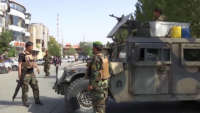
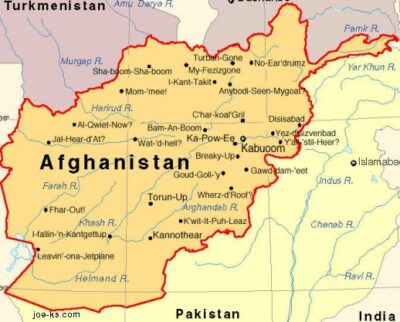
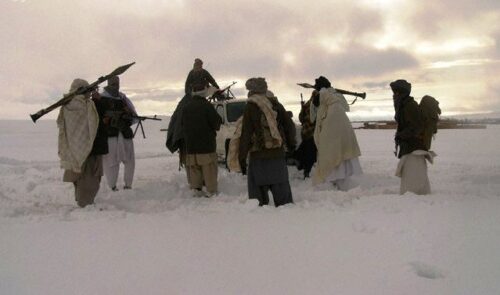
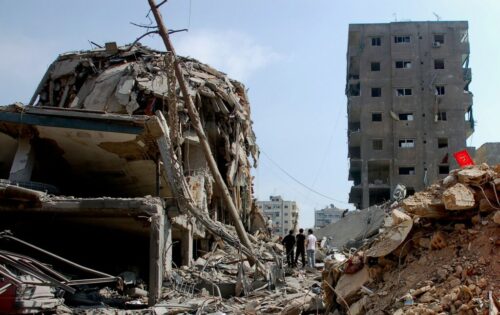



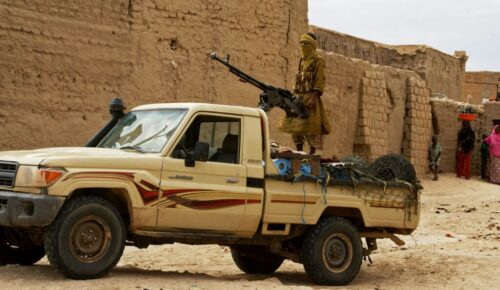
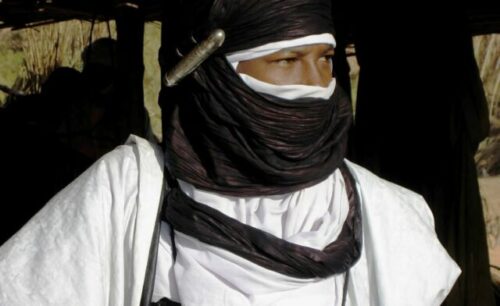
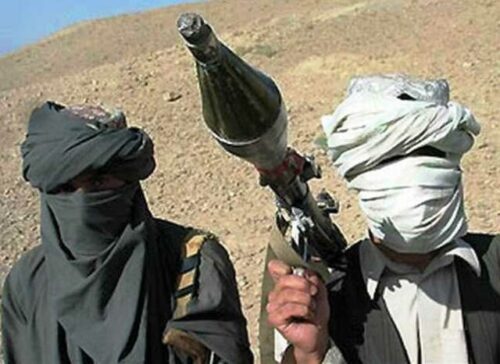
 Photo Credit:
Photo Credit: 



